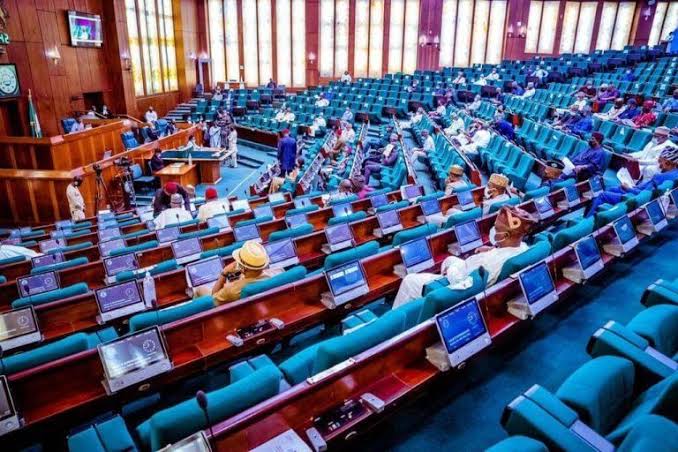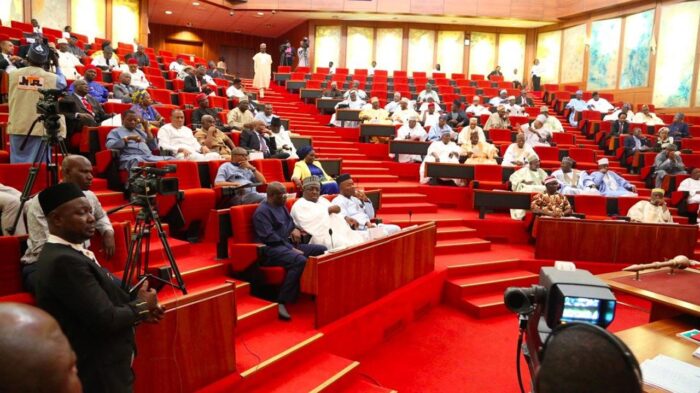Tinubu’s campaign promises resurface amid stalled mines in Enugu, Kogi, Benue
Isaac Samuel
Nigeria is estimated to have 2.8 billion metric tonnes of coal, with proven reserves of approximately 639 to 650 million metric tonnes.
Yet, this mineral, once the backbone of the country’s railways and industries remains largely untapped underground, costing the nation an estimated $1 billion each year.
The House of Representatives, during the week, said the losses can no longer be ignored, as it opened a public hearing on a bill to repeal the obsolete Nigerian Coal Corporation Act and replace it with the Nigerian Coal Development Commission.
The bill is titled “A Bill for an Act to Repeal the Nigerian Coal Corporation Act and Enact the Nigerian Coal Development Commission Enugu and for Related Matters (HB.667).
The bill is part of the 12 bills that before the House of Representatives that is aimed at developing the solid minerals sector. Sponsor of the bill, Chimaobi Atu (APC, Enugu), told the session that Nigeria must urgently return to coal, not just as history, but as a tool for steel, power, and industrial revival.
The proposed legislation had scaled second reading in March and was thereafter committed to the Committee on Solid Minerals Development for further legislative action.
“The coal industry provided a chunk of our national revenue before and after independence but collapsed with oil. This bill, when passed, will revive that legacy and end illegal coal mining,” Atu said.
According to Atu, Nigeria’s coal deposits are estimated at 2.8 billion metric tons, concentrated mainly in Enugu, Kogi, and Benue states.
He noted that “clean coal” from these regions is particularly vital for steel production and could catalyse industrial and manufacturing revival
The Nigeria coal industry has four closed non-optional mines in Okpara and Onyeama in Enugu State, Okaba surface in Kogi State and Owukpa underground in Benue State.
Experts have argued that coal, once regarded as the jewel of Nigeria’s economy before the discovery of crude oil, should not have been allowed to waste.
The country made its first commercial discovery in Enugu in 1908, and by 1916, coal had become the main source of energy for electricity generation, industrial power and railway transportation.
But the discovery of oil in Oloibiri in 1956 marked the beginning of a steady decline.
By the mid-1960s, the Nigerian Railway Corporation switched its engines from coal to diesel, drastically reducing demand.
The civil war further disrupted production, and decades of poor management, lack of investment and policy inconsistency left the once-thriving industry in ruins.
Data from the National Bureau of Statistics show that coal exports could reach 15 million tonnes per year if abandoned mines were revived. Globally, coal still contributes about 40 per cent of electricity generation, and remains vital in steel, cement, fertiliser and beauty products.
Yet in Nigeria, there are no operating coal power plants, and four mines in Enugu, Kogi and Benue remain closed.
Successive governments have promised revival. Former President Muhammadu Buhari, during his campaign, pledged to harness Enugu’s coal to generate jobs and electricity, but years later nothing has materialised.
Even as there is still no clear policy roadmap on how the present administration intends to revive the moribund coal industry, campaign-era assurances continue to echo.
In 2022, during the heat of the presidential race, South East spokesman of the Bola Tinubu Campaign Council, Dr. Josef Onoh, had insisted that coal would be central to Tinubu’s economic revival plan.
Onoh, whose late father, Dr. C.C. Onoh, was the first indigenous chairman of the Nigerian Coal Corporation, argued that Nigeria’s over 2.8 billion metric tonnes of coal reserves could add tremendously to GDP if properly harnessed.
Reinforcing this pledge, President Bola Tinubu who was then the presidential candidate of the All Progressives Congress (APC) at the time, also promised during a campaign rally at Okpara Square, Enugu, in 2023, that his administration would revive the abandoned coal mining projects in Enugu to boost the state’s economy.
“We can build it all. We can turn our coal into industry”, Tinubu said.
Tinubu’s statement was greeted with optimism in the South East, where coal remains both an economic and cultural symbol.
Quoting global trade figures, Onoh had highlighted that coal exports worldwide totaled $122.9 billion in 2021, with Australia, Indonesia, Russia, the United States and South Africa accounting for 84.5 per cent of the market.
By contrast, Africa contributed only 5.5 per cent, while Nigeria despite its vast reserves made no input.
He regretted the missed opportunities, stressing that coal remained a commodity in high demand both locally and globally.
But nearly three years after those promises, little progress has been made.
Atu at the public hearing stressed that the proposed commission would reposition coal as clean energy for steel production and manufacturing.
He argued that the timing of the bill tallies with Nigeria’s new partnerships, pointing to President Tinubu’s recent bilateral agreements with Brazil, which included coal in discussions on science and power.
Stakeholders agreed that the Nigerian Coal Corporation has long failed in its mandate and has created room for unregulated mining that benefits neither the government nor local communities.
Speaking, representative of the Nigerian Mining and Geosciences Society (NMGS), Godwin Alo, explained that previous privatisation attempts, managed through the Bureau of Public Enterprises, had failed to attract sustained investment, despite interest from major multinational companies.
He said, “There was a bidding process that attracted some of the world’s biggest mining firms, but somehow that bidding process got installed along the line. If not, that industry even without this commission would have gone ahead and developed.
Alo stressed that the Nigerian Geological Survey Agency (NGSA) remains central to coal development, as the custodian of mineral data dating back to the early 1900s.
Managing director of RockThermal Ltd, Chibuokem Kenechukwu, said the existing corporation had failed to regulate the sector, paving the way for unregulated and illegal mining across Enugu, Benue, and Kogi states.
“The existing Nigerian Coal Corporation has become largely ineffective and moribund, unable to fulfill its mandate of developing Nigeria’s coal resources. This institutional failure has resulted in illegal mining activities across Enugu, Benue, and Kogi states, conducted without proper oversight, environmental standards, or structured benefit to the nation”, he said.
Kenechukwu also urged that the commission be headquartered in Enugu, which has the nation’s largest proven coal reserves and existing infrastructure.
“We strongly support establishing the commission headquarters in Enugu State, given that it contains the largest proven coal reserves in Nigeria, has decades of institutional memory and expertise in coal mining, and possesses existing infrastructure and educational resources that support effective coal development oversight,” he said.
A mining consultant with Dangote Industries Ltd, Taslim Jimoh, noted the importance of coal to Nigeria’s cement industry, which consumes more than 90 per cent of the country’s current coal output.
“We even take coal from Kogi to as far as Sokoto to power the power plant there. So, such is the importance of coal as an energy alternative for us,” he said.
Jimoh further noted that several coal assets earlier concessioned by the Bureau of Public Enterprises (BPE) were either abandoned or returned by investors who could not manage them, leaving once-productive sites such as the Onyeama and Okpara mines in Enugu State completely flooded and dormant.
Reviving these mines, he stressed, would require significant technical expertise and capital investment, far beyond the capacity of individual operators.
According to him, only a structured federal intervention through a specialised commission can mobilise the scale of resources needed to rehabilitate such strategic but neglected coalfields.
“There are coal deposits that the BPE concessioned and the people who took them over returned them, they couldn’t handle them.
These are the coal in Enugu, Onyeama and Okpara mines which are flooded now. It takes a lot of technical expertise and funding to revive those mines,” he said.
He also highlighted the significance of underground coal reserves, which, unlike open-cast mining, cause minimal environmental disruption and could be mined beneath communities without displacing residents.
Speaker Tajudeen Abbas on his part said that the solid miners sector was an integral part of developing a robust economy, taking attention away from oil revenue.
Represented by a member of the House, Mark Oseni, the Speaker said developing the sector not an option, but an imperative as the nation look towards building a diversified, resilient, and inclusive economy.
The Speaker said the public hearing is not merely a procedural step; but a fundamental pillar of J democratic process, as it offers a vital platform for robust public engagement and for capturing a diverse range of perspectives on legislation that will shape the future of Nigeria’s solid minerals sector.
He said the bills before for consideration represent a strategic pivot in the national economic agenda, adding that for decades, our economy has been heavily reliant on a single commodity.
Chairman of the House Committee on Solid Minerals, Jonathan Gaza Gbewfi, said the exercise is not just a constitutional duty, but also a strategic step towards repositioning the solid minerals sector as a true pillar of Nigeria’s economic transformation.
He said “As we are all aware, the solid minerals sector holds enormous potential for national growth, job creation, revenue generation, and industrial development. Yet, for decades, this potential has remained underutilized due to outdated laws, weak institutional frameworks, and poor funding mechanisms.
“This House, through the Committee on Solid Minerals Development, is determined to reverse that trend by strengthening the legislative foundation of the sector.





